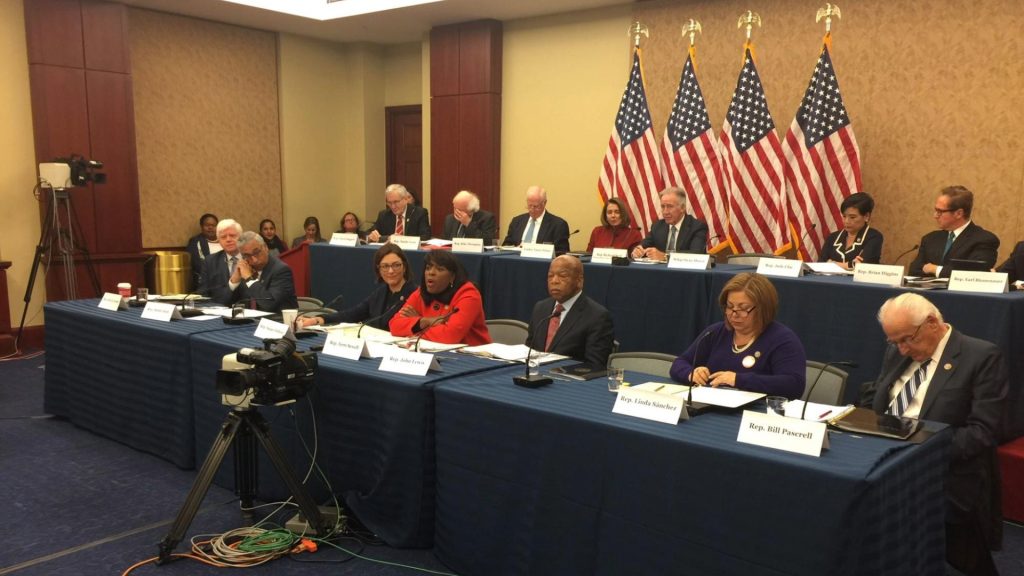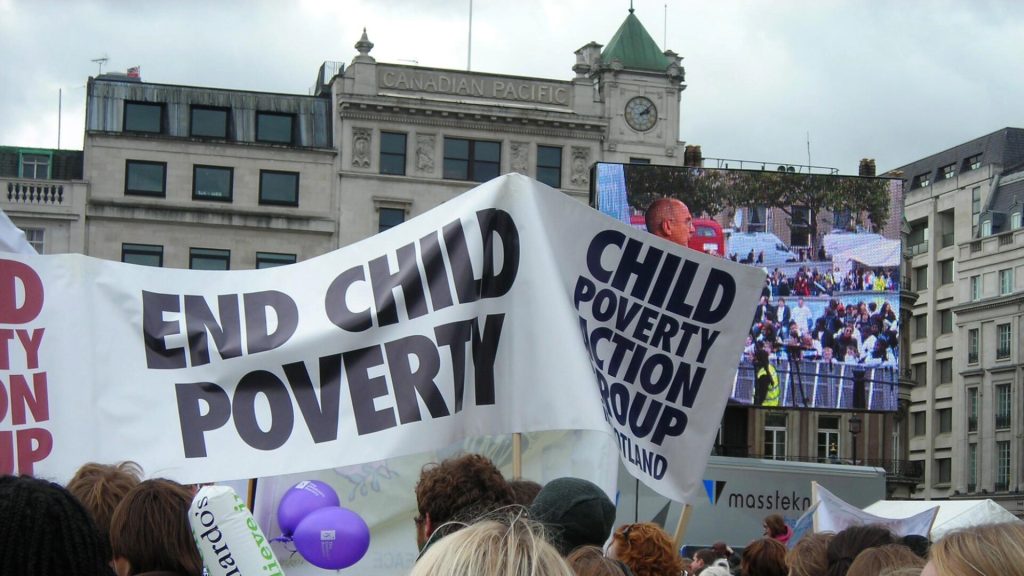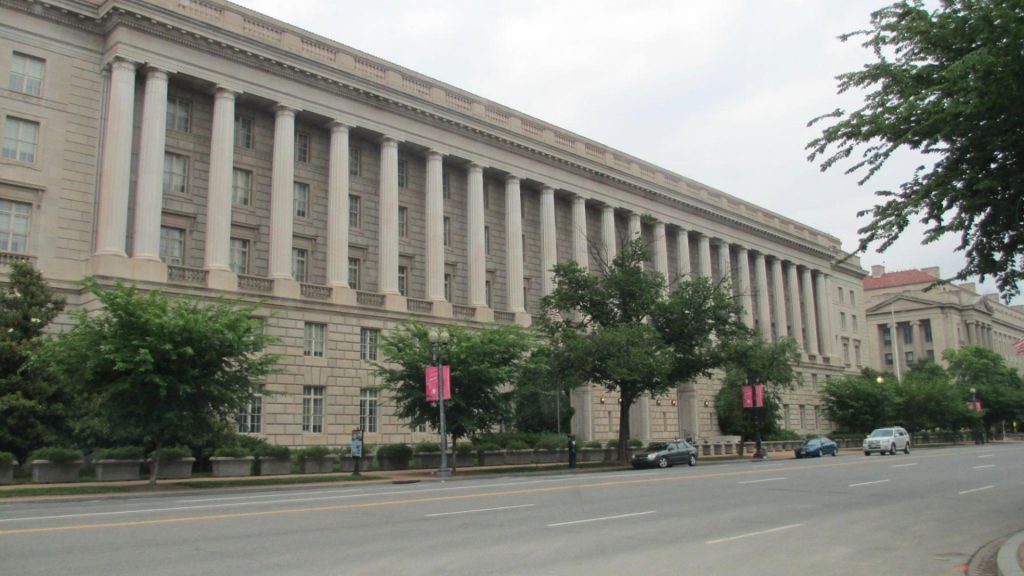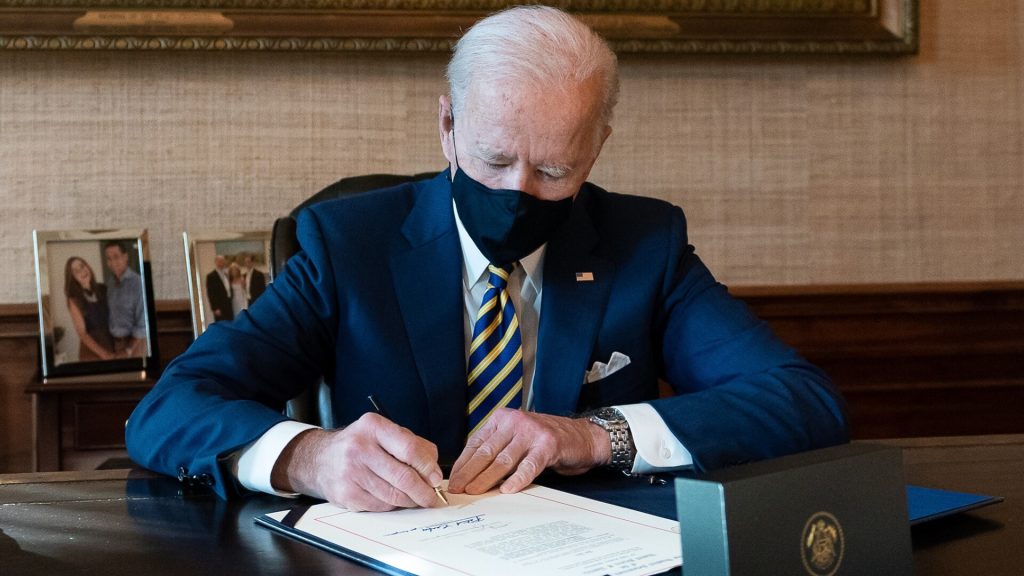Treasury Secretary Janet Yellen worked hard to defend the 2025 fiscal budget proposed by President Joe Biden on Thursday. Republican senators questioned Yellen about provisions from the Tax Cuts and Jobs Act enforced by the Trump administration as well.
What Is The Tax Cuts And Jobs Act (TCJA)?
The Tax Cuts and Jobs Act (TCJA) was a major element of tax legislation passed in December 2017 within the U.S. It was viewed as a highlight of the Trump administration as it reflected a major overhaul of the U.S. tax system unlike anything the country had seen in three decades.

The TCJA impacted individual and corporate taxes as well. Even though it maintained each of the seven tax brackets, it was designed to lower the tax rates of most of them. The adjusted rates ranged from 10% to 37%.
Yellen Asked If TCJA Expiration Would Lead To Tax Hike
Senator Mike Crapo, a representative from Idaho, asked Yellen if she would agree that not extending the TCJA child tax credit provisions “would also result in a tax hike for Americans making under $400,000.” Crapo was reportedly the committee’s ranking member.

Yellen responded by saying that Biden is “committed to not raising taxes” for those households. She further explained that he is also committed to the “importance of the Child Tax Credit.”
The Child Tax Credit Reduced Child Poverty Rate In 2021
There have been quite a few benefits and positive changes made by the Child Tax Credit in recent years – especially during the pandemic. One report shows that the credit assisted in the reduction of the child poverty rate back in 2021.

It reportedly dropped the child poverty rate from 9.7% in 2020 to 5.2% in 2021 – a difference of 42%.
Senator Daines Slams Biden For Decision to Let TCJA Expire
Senator Steve Daines expressed his disappointment in President Biden’s decision to let the TCJA expire during the Senate Finance Committee hearing where Yellen testified. Daines reflected on the fact that Biden vowed for years that there would be “no tax increase on individuals earning less than $400,000.”

By choosing to let the TCJA expire, Daines claims that the decision will “increase the corporate tax rate.”
Daines Believes Biden Is ‘Forcing American Families’ To Bear Cost Of ‘Woke’ Policies
Daines also referenced the clean energy policies listed under the 2022 Inflation Reduction Act within his comments. He stated that Biden will be “forcing American families and workers to bear the cost of these ‘woke’ policies.”

The Inflation Reduction Act, which was signed into law in August 2022, outlined a wide range of provisions that focused on addressing healthcare costs, climate change, and tax reforms.
How Did The TCJA Affect Families, Households?
The TCJA essentially doubled the standard deduction – increasing the standard deduction to $12,000 and $24,000 for single filers and those married filing jointly respectively. Personal exemptions were eliminated.

The TCJA also doubled the child tax credit per qualifying child, raising it from $1,000 to $2,000. It also introduced a new credit for other dependents ($500) and doubled the exemption for estate taxes.
What Impact Did The TCJA Have On Businesses?
The corporate tax rate was drastically reduced by the TCJA from 35% to 21%. Deductions of up to 20% of qualified business income could be processed by filers that owned sole proprietorships, partnerships, LLCs, and S-corporations.

The TCJA also moved the United States towards a standard territorial tax system. Preventing tax base erosion is also an included provision, including the Base Erosion & Anti-Abuse Tax (BEAT).
The TCJA Is Currently Set To Expire In 2025 Along With Its Credits
The current schedule of the TCJA shows that it is set to expire in 2025. If it expires, then its provisions will expire along with it – including the child tax credit and other similar benefits.

The credit let taxpayers reduce their tax bill up to $2,000 for each qualifying child with a maximum income threshold of $400,000 for each individual family.
White House: Republicans Would Add To National Debt Before Corporate Tax Rate
According to a statement published by the White House earlier this month, “Republicans would rather add trillions to the national debt than take back even one dollar of the $150 billion annual rate cut corporations received under President Trump.” The statement further explained that Biden’s budget was designed to cut taxes “for working families and lower deficits by trillions” over a decade.

Biden’s budget was reportedly designed to start “making the wealthy and big corporations pay their fair share.” It also wanted to ensure that no one earning less than $400,000 will pay any new taxes.
Biden Budget Would Set Corporate Tax Rate At 28 Percent
President Biden’s budget would lock the corporate tax rate in at 28 percent. Reports show that this figure is still much lower than the 35% rate that was in place before the 2017 tax law.

The budget would also reportedly increase the Inflation Reduction Act’s corporate minimum tax rate specifically on billion-dollar corporations. These policies are further complemented by proposals designed to incentive job creation within the United States as well.
IRS Has Already Collected Over $500M In Unpaid Taxes From Millionaires
President Biden also made headlines when he secured additional funding to support the Internal Revenue Services (IRS) in its endeavors to focus on high-income individuals and companies. For instance, the IRS reportedly collected over $500 million in unpaid taxes from a group that consisted of less than 2,000 delinquent millionaires.

The IRS also started to focus on high-end tax evasion attempts. This includes the people that are trying to deduct the personal use of corporate jets and other vehicles as a business expense.
Biden Wants To Increase Child Tax Credit For 66 Million Children
Contrary to popular belief, President Biden’s budget would also reportedly increase the child tax credit for 66 million children. The expanded Child Tax Credit would be restored instead of eliminated.

Essentially, according to the White House, this would start “lifting 3 million children out of poverty” in addition to “cutting taxes by an average of $2,600 for 39 million low- and middle-income families.”
Biden Budget Would Cut Tax Subsidies For Real Estate, Close ‘Like-Kind Exchange’ Loophole
Another aspect of the Biden budget would be the elimination of a special tax subsidy specifically designed for real estate known as the “like-kind loophole.” The loophole allowed real estate investors to delay paying tax on profits from various deals.

This essentially equaled out to an “indefinite interest free loan from the Government.” According to the White House, real estate was “the only asset that gets this sweetheart deal.”
Biden Budget Would Also Cut Tax Subsidies For Cryptocurrency Transactions
President Biden’s budget was also designed to eliminate the special tax subsidy available for cryptocurrency and other related transactions. At the time, crypto investors were not subject to the same rules and regulations that other investors had to follow within the expanding world of securities.

That “freedom” allowed them to report losses in excessive amounts. Biden’s budget would eliminate that subsidy by modernizing the tax code to become applicable to crypto assets as well.






